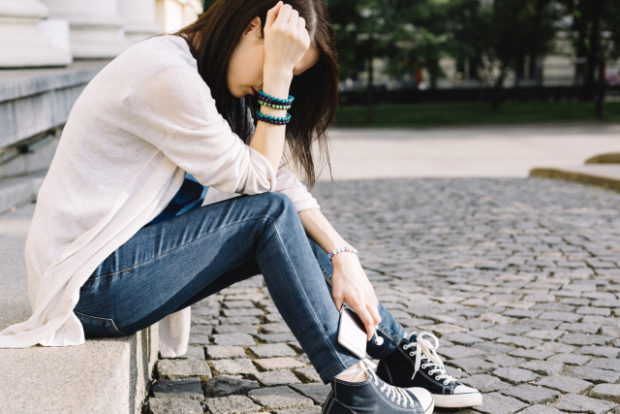COVID-19: US survey evaluates impact on romantic relationships, mental health

Image: Istock.com/Martin Dimitrov via AFP Relaxnews
An American survey conducted by researchers at Chapman University in California has highlighted the impact of the COVID-19 pandemic on 4,149 adults with an average age of 39 years living in the United States. The study made use of a national data set from all 50 states, but the sample was not nationally representative, say the authors of the publication.
Conducted over a one-week period at the end of April, the survey revealed that the majority of those questioned reported feeling additional stress (61%) and feeling more depressed than usual (45%). The survey also found that essential workers such as grocery store clerks, delivery personnel and restaurant employees experienced even more loneliness, anxiety and other negative emotions. However, they were not significantly more worried about contracting the virus.
Mixed findings on sex and romantic relationships
With regard to couples, the quality of people’s romantic and sex lives was assessed on the basis of the responses of 2,702 survey participants who reported having a long-term relationship. Not surprisingly given the lockdown, 64% reported spending more time with their significant others. Close to a quarter of the participants reported having fewer arguments with their partners in the preceding week (24%), while another quarter reported having more arguments than usual (25%).
“For some couples, the silver lining is that they are getting to connect with their partner. For others, staying home together allows little stressors to build and blow up which then promotes conflict over existing disagreements,” points out David Frederick, an associate professor of health psychology who directed the study.
One might have assumed that lockdown would be the ideal time for couples to devote more time to their sex lives. Yet only 19% of the survey participants reported having sex more frequently than usual.
“Anxiety and stress regarding health, finances and a host of other thoughts that consume our cognitive energy can make it challenging to feel in the mood,” points out Amy Moors, an assistant professor of psychology at Chapman who worked on the study.
Asian Americans confronted by racism
The researchers also asked African and Asian Americans if they had experienced discrimination such as physical threats or insults, relating to a perceived link between their ethnicity and the coronavirus.
Close to a third (32%) of Asian Americans reported having experienced at least one racist incident related to COVID-19. Among Chinese Americans, a quarter of those surveyed (25%) had experienced three or more racist incidents.
As for African Americans, the ethnic group that has been hardest hit by the virus, 26% reported having experienced “at least” one racist incident and 21% reported having experienced “three or more.”
“We need clear and consistent messaging to indicate that viral pandemics do not stem from our ethnocultural minority communities. Rather, residents living in disadvantaged, ethnocultural minority communities are at greater risk for COVID-19 related morbidity and mortality due to longstanding systemic inequities that unfairly limit access to health-protective resources,” points out Jason Douglas, a co-author of the study. JB
RELATED STORIES:
Insomnia, depression: Study examines possible impact of COVID-19 on patients’ mental health